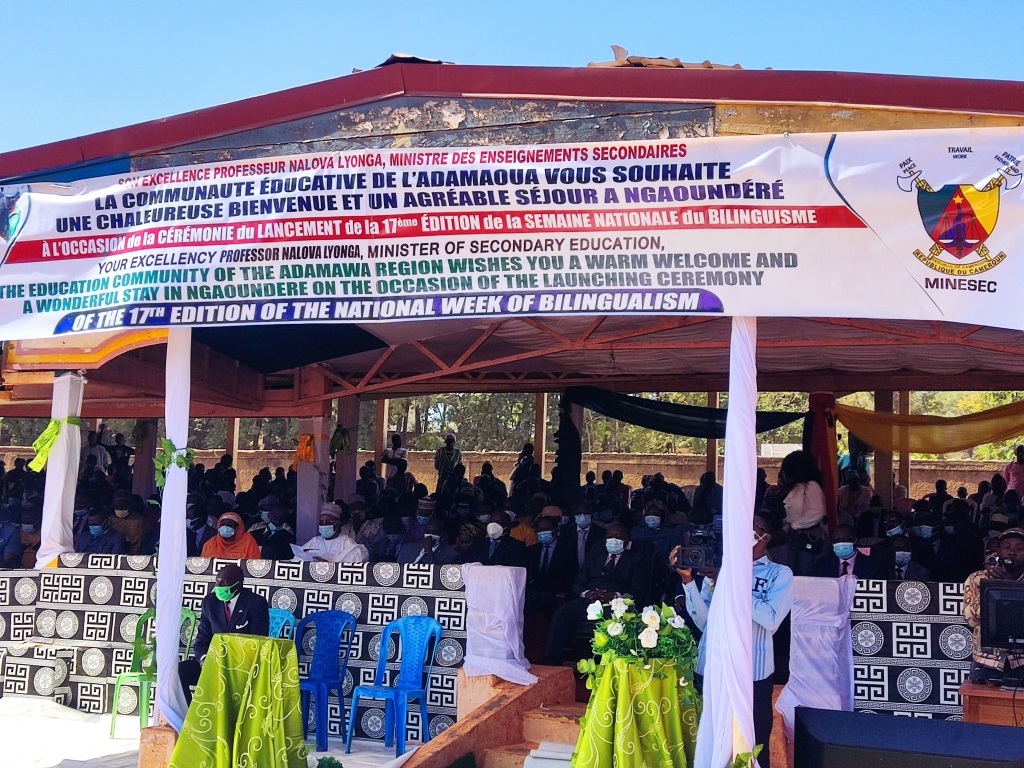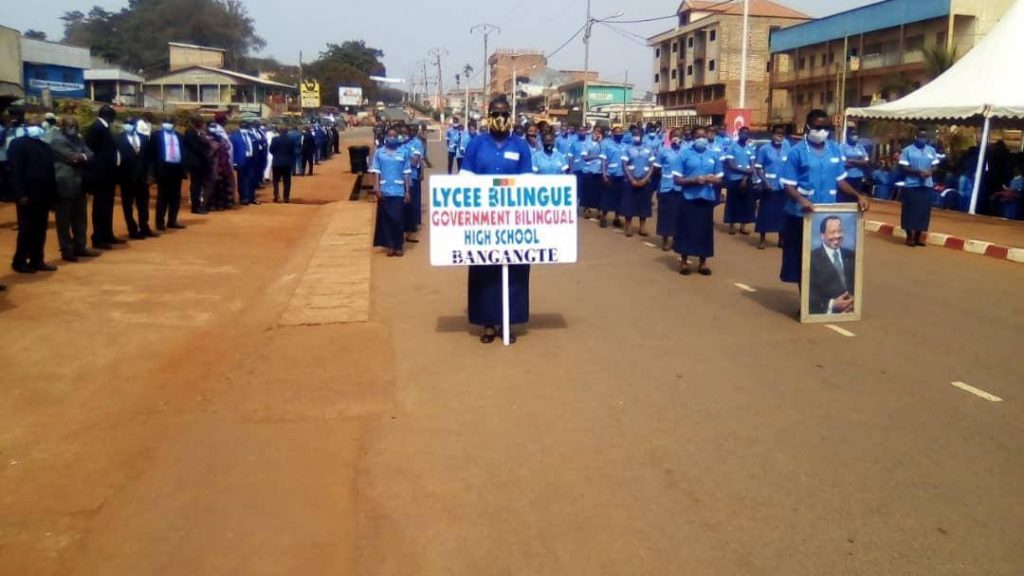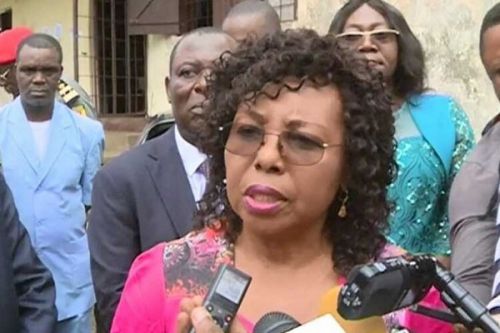The Good Example from MINESEC
There is no gainsaying that the Ministry of Secondary Education under the indefatigable stewardship of Professor Nalova Lyonga has made the practice of bilingualism a cornerstone of not only the day-to-day activities of Ministry but also of the 2035 emergence vision of the Head of State, Paul Biya.
Ever since her appointment as Minister of Secondary Education, Prof. Nalova Lyonga has made the practice and promotion of bilingualism in her ministerial department a key assignment.
Bilingualism strengthens cognitive abilities – bilingual people tend to be more creative and flexible. They can be more open-minded, and they also find it easier to focus on a variety of tasks simultaneously. And so through the yearly celebration of the National Bilingualism Week to influencing educational sectors in implementing a bilingual system of education in Cameroon, Government has stepped up the promotion of bilingualism which is intended to facilitate the living together of the citizens.
Making Cameroon a Better Place with Bilingualism
In order to encourage Cameroonians to express themselves in the country’s two official languages, the Head of State enacted Law No. 2019/019 of 24 December 2019 “to promote the equal use of English and French in public services and bodies”. To enforce this law, the Minister of Secondary Education is setting the pace and leaving no stone unturned in transforming monolingual schools into bilingual secondary and high Schools. Even technical schools which hitherto had only one language of instruction are being transformed into bilingual technical colleges and high schools.

At the Ministry, the Inspector Coordinator General of Bilingualism at MINESEC and his collaborators have added a touch of marketing the weekly day of bilingualism in the Ministry as they carry out sensitisation with banners – retractable banners and face-to-face encouragement of visitors and personnel of the Ministry to be bilingual.
At the level of schools, the creation of language clubs, the institution of the Bilingual Game which consists in teachers using the other official language during the last ten minutes of each lesson, the Bilingual magazine, the televised national debate (students debate on the bilingual theme sometimes broadcast live or recorded for transmission later on CRTV) etc during the National Week of Bilingualism, are all strategies used to promote bilingualism at secondary education level.
To crown these efforts, there is the special bilingual education programme that is being implemented in some 150 pilot schools all over the national territory. This flagship programme does not only teach intensive French and English, it also puts learners in a situation of partial immersion whereby they are to learn Sports and Physical Education, Citizenship, and Arts and Craft in the other official language. Another innovation with this programme is the teaching and evaluation of oral communication, an aspect of language learning and assessment that has been neglected in the past. Worthy of note also is the Distance Education Centre where French and English, among other subjects are taught, recorded and lodged on the Ministry’s platform athttps://minesec-distancelearning.cm as well as on YouTube for exploitation by all.
The mastery of Cameroon’s official languages undeniably comes with enormous benefits to those who grasp it. Proficiency in the two languages is an extra skill that enriches one’s CV and people who are bilingual are an asset to employers, as services are better delivered in both languages. Also, learners with some mastery of English and French would benefit a great deal as they will be able to make themselves understood when they call the Call Centre (@) to seek a solution to their problems.
Challenges
However, despite the enthusiasm being put in place by officials of MINESEC into promoting the much-cherished bilingualism, they are faced with many challenges that slow down the process and sometimes leave the impression that milestones are not being covered.
One of such drawbacks is ignorance of the power of these two languages that open doors to unlimited opportunities in and out of Cameroon. Some learners, according to reports, are simply not interested in the other official language and see it as an extra burden, an attitude with a negative impact on the language class. Worst still, learners’ fear of making errors is a serious challenge to grapple with. Other challenges faced by officials include: insufficient human, material and financial resources, nonchalant school administrators and the hostility of some parents to the “second” official language.
Way Forward
In the face of all these and in spite of these setbacks, the endeavour to promote bilingualism at the Ministry of Secondary Education is gaining steam as Minister Nalova Lyonga and her collaborators are bent on achieving their objectives of making Cameroon a better place by ensuring that all stakeholders upgrade themselves and develop new strategies to promote Bilingualism.

Meanwhile, there is the need to create immersion by encouraging holiday camps, exchange visits between schools and families of the two sub-systems. Learners should be made to understand that making errors is a positive move towards perfection and that shying away from speaking at all is a bad learning strategy. Errors and difficulties should be transformed into learning opportunities, as the Minister has always insisted to her collaborators.
And beyond all reasonable doubt, understanding the culture of others and speaking their language helps to breakdown walls of misunderstanding and builds bridges. Nelson Mandela aptly captured this when he said: “If you talk to a man in a language he understands, that goes to his head. If you talk to him in his own language, that goes to his heart.”
In a world of economic, socio-political and linguistic challenges in which mastery of ICTs is primordial, a linguistic paradigm shift for all Cameroonians to bilingualism becomes an imperative. This would go a long way to ease some of the problems in the country thereby contributing to national peace.




